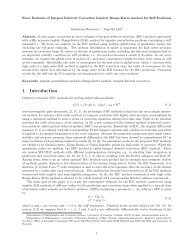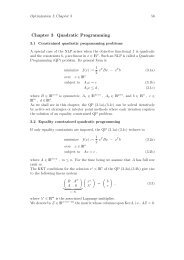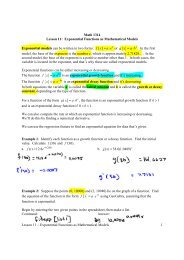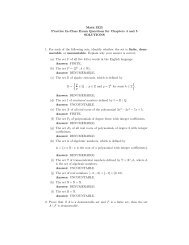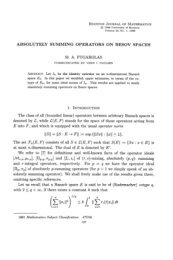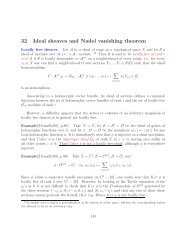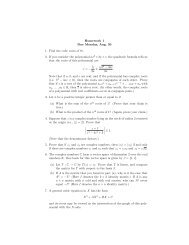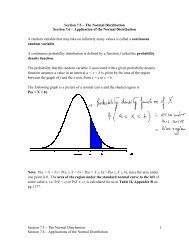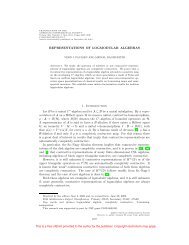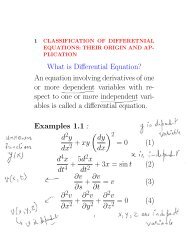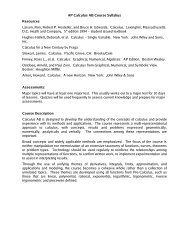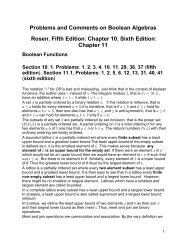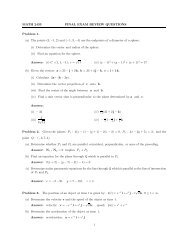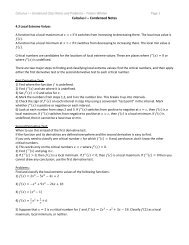Survey 1979: Equational Logic - Department of Mathematics ...
Survey 1979: Equational Logic - Department of Mathematics ...
Survey 1979: Equational Logic - Department of Mathematics ...
You also want an ePaper? Increase the reach of your titles
YUMPU automatically turns print PDFs into web optimized ePapers that Google loves.
EQUATIONAL LOGIC<br />
Walter Taylor<br />
This is a survey <strong>of</strong> existing work <strong>of</strong> many authors in equational logic or varieties <strong>of</strong><br />
algebras. Our primary interest is in equations for general algebraic systems, and we will<br />
not report in detail on equations in special systems (e.g., fields, where equations<br />
began). As a branch or "fragment" <strong>of</strong> general first order logic, this subject has two<br />
aspects, one focusing attention on the formal expressions (in this case, the equations),<br />
and the other focusing on the models <strong>of</strong> these equations. We give slightly more<br />
attention to the first <strong>of</strong> these, focusing, until õ 13, on sets <strong>of</strong> equations. This survey<br />
owes much to an expository article <strong>of</strong> Tarski [413] in 1968, and to some unpublished<br />
notes <strong>of</strong> D. Pigozzi (ca. 1970). Our exposition will be self-contained for the general<br />
mathematician, the only special prerequisite being a rudimentary understanding <strong>of</strong> the<br />
term "decidable." We include no pro<strong>of</strong>s. This survey originated in a series <strong>of</strong> talks at<br />
the 1975 Summer Research Institute <strong>of</strong> the Australian Mathematical Society. Some<br />
valuable suggestions about this article were made by G. Bergman, W. J. Blok, S.<br />
Comer, B. Cskfiny, B. Davey, A. Day, G. Gr//tzer, W. Hodges, B. J6nsson, R.<br />
McKenzie, G. McNulty, J. Mycielski, E. A. Palyutin, D. Pigozzi, A. Pixley, and A.D.<br />
Tat'manov.<br />
Our objective is to make more mathematicians aware <strong>of</strong> this subject and to<br />
provide a readable introduction to its examples, its theorems, and what they mean in a<br />
fairly broad context. At the same time we hope to provide a reasonably complete<br />
survey <strong>of</strong> the literature which will be helpful to specialists. For these reasons (and<br />
others) we have omitted all pro<strong>of</strong>s, and so perhaps we should warn the reader <strong>of</strong> one<br />
aspect <strong>of</strong> the subject on which we have not commented in detail: which <strong>of</strong> these<br />
results were most difficult to prove.<br />
But here we may mention one <strong>of</strong> the attractions <strong>of</strong> equational logic: there are<br />
hard and interesting theorems which are very easy to state (a property <strong>of</strong> all attractive



